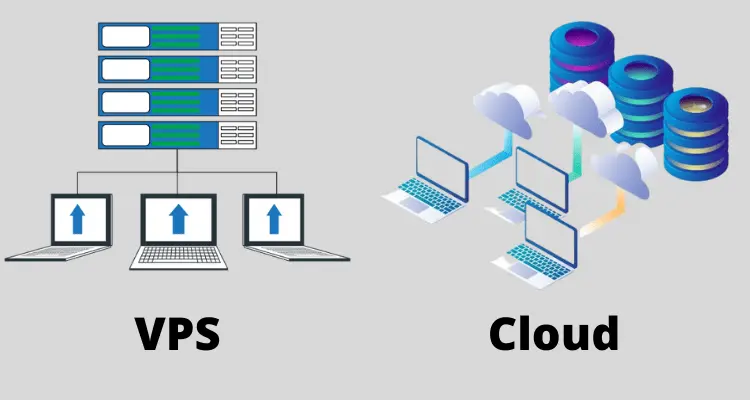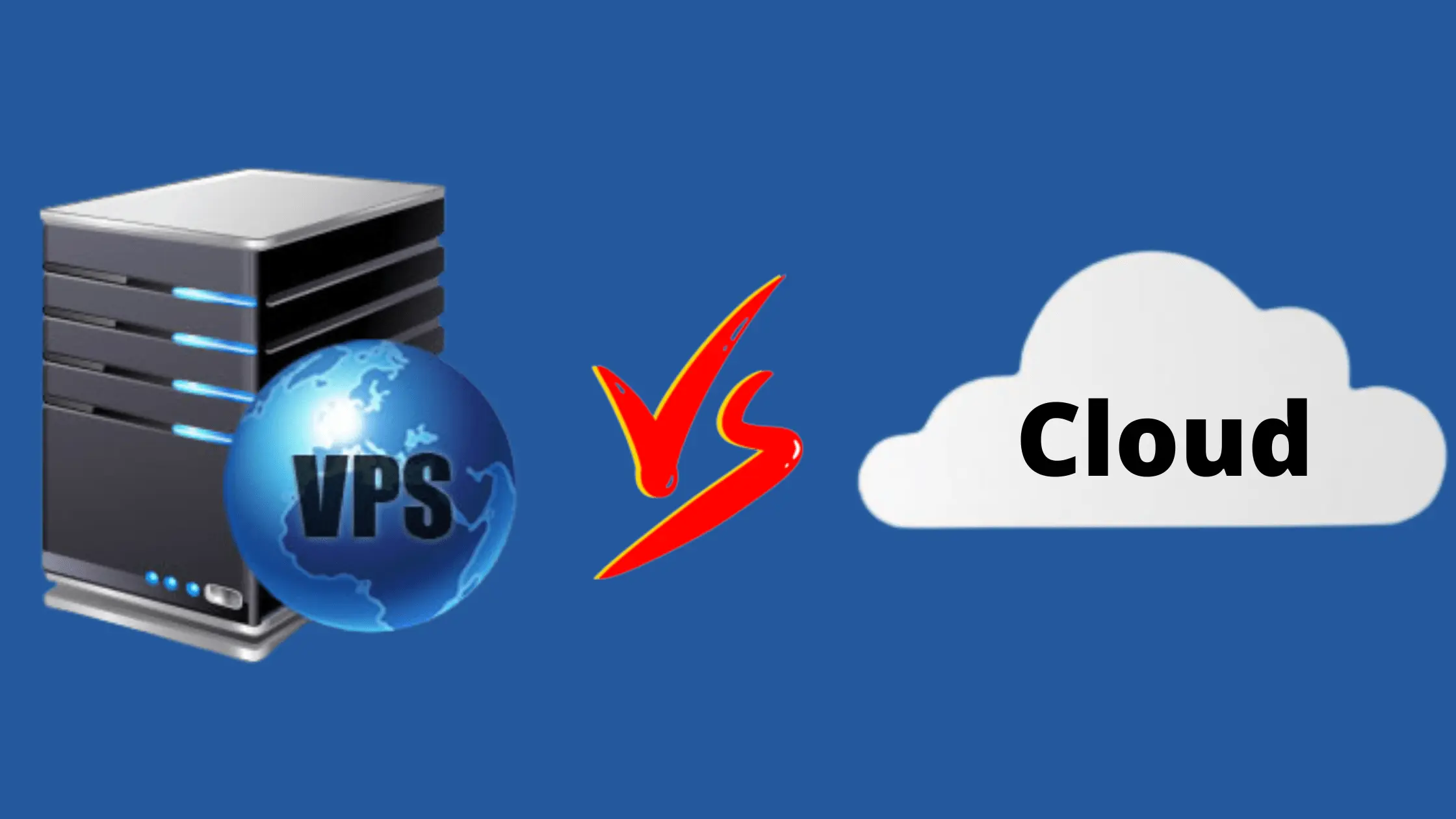Table of Contents
Introduction:
Before you understand the difference between VPS and cloud hosting, it’s important to understand what VPS and cloud hosting are and how they work. It’s also important to know which one you should pick for your website.
So, in this article, you will discuss both VPS and cloud hosting features with the benefits and downsides of each to consider when choosing the right hosting service.
What is VPS (Virtual Private Server) Hosting?
VPS Hosting is a mix of Shared and Dedicated Hosting. The VPS hosting idea consists of a single physical server that is divided into numerous tiny virtual servers. Although they are technically part of the same server, each one of these virtual servers works as its own specialized hosting environment.
Since you have your own sector of the server, you may customize and manage your server split exactly how you like. Also, there is no data exchange or file access between users on the VPS servers. One downside of VPS hosting is if a physical server fails, all VPSs using that server fail as well.
What is cloud hosting?
Cloud hosting is just a set of several servers joined together by a shared network to form one bigger server. Cloud hosting distributes resources such as RAM, CPU, and disc space across several servers. As a result, there is no wait in the transfer of CPU power or RAM access.
Difference Between VPS and Cloud Hosting:
A VPS is a defined part of a physical server’s resource. The cloud is built on numerous dedicated servers, and you may switch the arrangement at any time.
Let’s discuss the basic difference between VPS and cloud hosting:
Do you want to scale?
A virtual private server (VPS) is a closed environment with a predetermined setup.
Cloud hosting services are provided as a separate pool that may be scaled up at any time.
Thinking about your data safety?
A virtual private server is extremely secure. Your VPS will operate separately from any websites that share the same physical hardware, keeping it safe from unauthorized activities. However, there is a possibility that the weak security of some other site may harm your own.
A cloud hosting solution will be extremely secure, with individuals on the same physical network connection segregated from one another. But, because your server is completely cloud-based, it is more prone to cyber threats.
Want better performance?
Because you’re assured a specific quantity of web servers, VPS provides a very good performance. Every server is isolated from the others, so your website performance must be unaffected by the other websites.
In cloud hosting, the demands of all websites on the system are distributed across several servers, it provides exceptional uptime. Backups are integrated into a case one fails or is subjected to higher-than-usual demands.
Want good customization?
A virtual private server (VPS) is highly customized and equivalent to a dedicated server. You have complete control over the operating system and software.
Cloud hosting includes a large variety of customization options. However, you may be limited by the high number of servers necessary to circulate the data.
Concern about server failure?
In VPS, If the host server fails, all virtual machines become unavailable.
This is not possible on a cloud server, which uses numerous physical servers.

When should you use VPS Hosting?
- You’re looking for a customizable hosting environment.
- You’d want to have your own server.
- If you are looking for a Dedicated Hosting solution.
When should you use cloud hosting?
- You own a successful website that is undergoing a rise in traffic.
- If you must have a wide bandwidth and some technological understanding.
- You want to be able to scale your website as needed.
Best recommended VPS Hosting for WordPress:
Best recommended Cloud Hosting for WordPress:
Pros & Cons of VPS Hosting:
Pros:
- Easy to customize.
- High security.
- Full control of your server.
- Excellent website speed.
- Get more stability.
Cons:
- They are not scalable, but you can of course buy extra space.
- More expensive than shared hosting.
Pros & Cons of Cloud Hosting:
Pros:
- Always scalable.
- No single point failure.
- Most reliable hosting service.
- Back up data on the cloud daily.
- Excellent performance.
Cons:
- Because it is hosted in the cloud, you have little control.
- It is vulnerable to cyber-attacks because it is a web-based service.
Which should you go with?
That’s all about the difference between VPS and Cloud Hosting. Both cloud and VPS have their own set of advantages, and what works for one may not work for the other.
VPS Hosting is an excellent solution for a new business that intends to grow with more traffic in the future because it requires less technical skills and is thus easier to manage.
If your website is expanding and your current server appears to be unable to handle the traffic, it is advised that you migrate to Cloud Hosting.
Conclusion:
I hope you now have a clear concept of the difference between VPS and Cloud Hosting. If you need web hosting and want something stable and affordable, consider cloud or VPS hosting. Each of these options provides the best hosting services you require.
more significantly, with which hosting company do you wish to purchase. Choosing the best hosting provider with a strong reputation helps ensure that you have a good customer experience. No matter the type of hosting you pick.
Few related articles you may like to read:
- Linode Hosting Review – Powerful Cloud Hosting Service.
- Vultr Host – The Infrastructure Cloud.
- Review of Bluehost Web Hosting – A Complete Overview.
- Liquid Web Hosting Review – Managed Web Hosting.
- Best Godaddy Hosting Plan For WordPress.
- Rocket.net review – Get the Ultimate Performance of Your Website.
- Cloudways WordPress Hosting Review.
